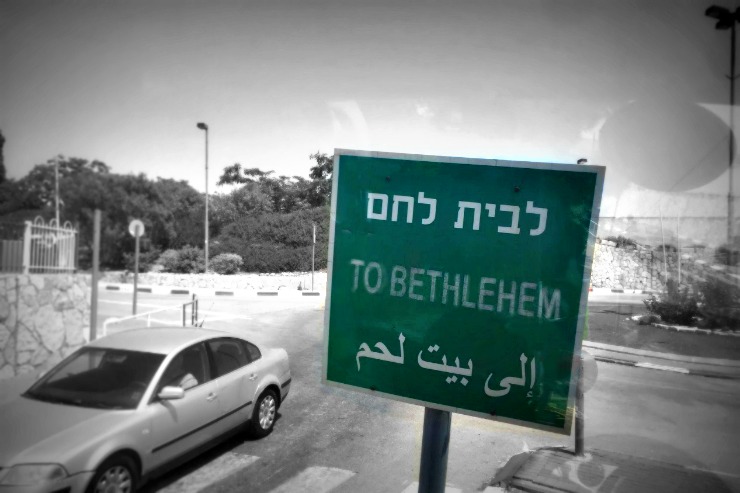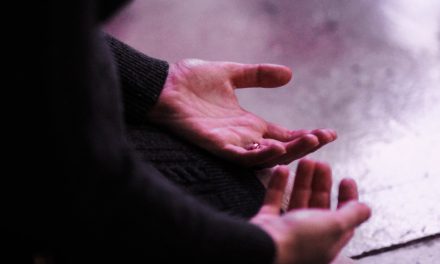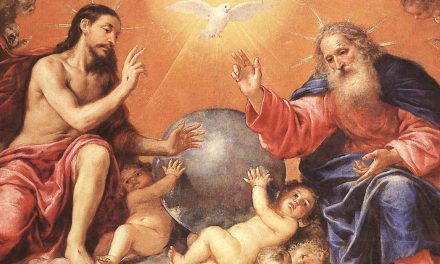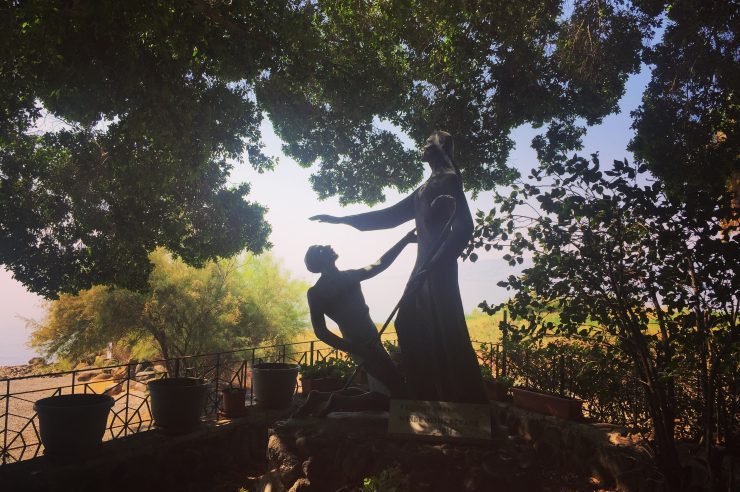When I was preparing to go to the Holy Land this summer, everyone who had been there before had the same message for me: You’ll never read the Scriptures the same again. As a Catholic, I should have realized this also meant something else: you’ll never celebrate the liturgical calendar the same again.
As we prepare for Christmas, my thoughts daily return to the city of Bethlehem. My day in Bethlehem was not the quiet and peaceful experience I envisioned it would be. I was getting sick, the crowds made me claustrophobic, and shortly before going down to touch the spot where our Lord entered the world from Mary’s womb, I came close to passing out. It wasn’t a spiritually-charged moment, like my time in other places in the Holy Land had been.
At the same time, there’s a lesson in that, looking back. Jesus doesn’t come to us only when life is peaceful, quiet, and serene. He comes to us in the mess and in the chaos. He came in a stable after an uncomfortable journey. And he comes to us in our weakest moments, our unphotogenic moments, and those times when we “feel” Him the least.
This Christmas, you may feel warm and fuzzy and full of good cheer. Or you may feel alone, sick, or weary. He still comes to you.
This reminder extends to the current situation in Bethlehem today. When I think of Bethlehem, the first image that comes to me is no longer a still, silent stable perched on a hillside. The image that comes to mind is one of an enormous, imposing concrete wall that surrounds the city and its inhabitants. It is the faces of the Christians living there, who this summer hadn’t seen pilgrims in over a month… which translates into not having seen commerce in over a month.
In the little town of Bethlehem, I found joy and love, but I also found poverty and helplessness. Ethnically, the Christian communities living in area we call the Holy Land are Palestinian. Many live in the West Bank, in cities like Bethlehem, Jericho, and East Jerusalem. They find themselves stuck in the middle of a complex and difficult situation and often forgotten. How many of us remember that when we utter the term Palestinian, we are also talking about our fellow Christians?
Over the last sixty years, the Christian population in the Holy Land has dropped from 18% to less than 2%. In many places, it has completely disappeared. In Bethlehem, there are less than 11,000 Christians today. Yet if we knew the situation there, that dropping number wouldn’t surprise us. It’s difficult to live in these cities, where a wall larger, taller, and longer than the Berlin Wall shuts you off from your work, your school, your family, and even sometimes your own land. The separation barrier has meant the confiscation and destruction of property, even cutting through ancient monasteries and convents and ancestral lands.
As we arrived in Bethlehem, our bus passed through one of the twenty-nine checkpoints that lead to the city and other nearby villages. We didn’t have trouble getting through, but it’s a different story for locals. The wall also makes getting resources and aid into these cities difficult. Much of Bethlehem does not have running water, and those who live there must get water delivered privately. The West Bank does not have access to the amount of water they need to maintain the World Health Organization’s minimum standard of daily water consumption. The unemployment rate in Bethlehem is twenty-seven percent, and trying to get out to seek work elsewhere is nearly impossible.
So it’s no surprise that Christians are leaving the land of Christ to seek opportunity elsewhere. Yet peace depends on the presence of the Christians in these places. “Our vocation is to remain despite our small number in the land where Jesus preached, redeemed humanity and founded the church,” said Latin Patriarch Emeritus of Jerusalem, Archbishop Fouad Twal. “We will continue to stay and to keep our faith. Our mission is to be witnesses of the Gospel of love and reconciliation… a bridge.”
This Christmas, do not forget the Christians who are trying to stay in the land of Jesus. Do not forget the Catholics who are struggling to maintain their Faith and culture in the town of Bethlehem. When we visited, I felt so helpless as I put myself in their shoes. What can I do to help my brothers and sisters who are so often forgotten?
- We can pray for them. We must not underestimate the spiritual power to which we have access. Peace in the Holy Land seems completely out of our hands. After all, it’s been a prayer on lips for thousands of years. (See Psalm 122:6). But prayer is our most powerful weapon. Offer your Holy Communion at Christmas Mass for the strength and protection of our brothers and sisters living in Bethlehem and the surrounding region.
- Go to them. We need them to know that they are not forgotten. If you are able, go to the Holy Land on pilgrimage. It’s important that you travel with the Church so that you are able to see and experience the lives of our brothers and sisters. Not all pilgrimages to the Holy Land are the created equal: go with Catholics and a trusted group like the Latin Patriarchate or the Franciscan Foundation. (Or join me!) For many Christians in places like Bethlehem, their livelihood depends on pilgrims.
- Support the Church’s efforts in the Holy Land. The Church has stayed, despite being told to leave. Help support the efforts of the Church, which does so much to aid the immediate needs of Christians in the Holy Land, provide educational opportunities in the area, and continue to give the people hope.
Visiting Bethlehem ensured that I would never celebrate Christmas the same ever again. A true understanding of Christmas is not found in saccharine Hallmark movies where problems are resolved in two hours. It is not even in that warm fuzzy feeling we get when we sing Christmas carols, or the joy we get when we give the best present. A true understanding of Christmas is found when we face the suffering and messes of life and realize Christ came there.
Christ’s coming that night in the stable did not immediately change the world. We still endure war, poverty, and suffering. He did not come to erase those things—He came to enter into them. Walking the streets of Bethlehem today does not mean walking into a sweet greeting card picture, complete with obedient cows and smiling shepherds. It means walking amongst poverty and oppression. But that is precisely where He enters in.
The answer to our problems—whether they are complex political problems or private, personal struggles—have one answer: the Christ child in the manger.
The situation in Bethlehem is complex, but the light of Jesus Christ continues to burn in the darkness. Christ comes to us in the dirty mess of life. He comes to us amidst the complexity, the hurt, and the pain. The streets of Bethlehem may not be a place of comfort and joy this Christmas, yet in thy dark streets shineth the everlasting Light. Dear people of Bethlehem, never forget: the hopes and fears of all the years are met in thee this Christmas.
















